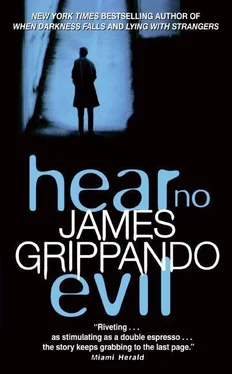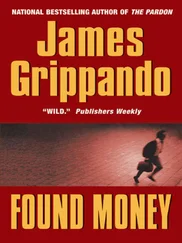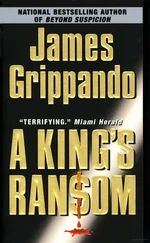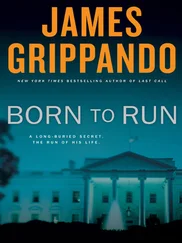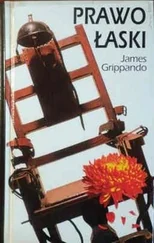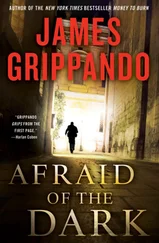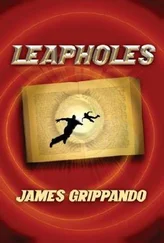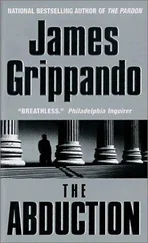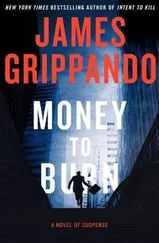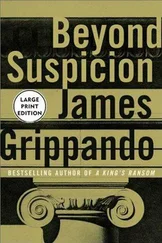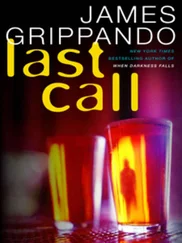“I understand. So, the very idea that the Coast Guard would return rafters to Cuba made you and a lot of other people angry.”
“Many, many people. That’s right.”
“It made your son angry, too, right?”
“Yes, it did.”
“Is it fair to say that Captain Pintado felt the same way you did about the U.S. Coast Guard?”
“Objection,” said the prosecutor. “There’s no evidence that Captain Pintado ever referred to the U.S. Coast Guard as Castro’s border patrol.”
“Overruled. The witness may answer.”
Pintado said, “On this particular issue, yes. I would say that my son felt the same as I did.”
“Did he make his views known at the naval base?”
Pintado paused, careful with his response. “I would hope not. There were hundreds of Coast Guard sailors stationed at Guantánamo.”
“Yes. Hundreds. Which means, sir, that in the largest newspaper in the Coast Guard’s Seventh District-which includes Miami and Guantánamo Bay-you called three thousand of your son’s next-door neighbors ‘Castro’s border patrol.’ ”
“Objection,” said the prosecutor. “Asked and answered.”
It was the kind of objection Jack welcomed, as it only underscored Pintado’s earlier response. “Yes, I guess it was asked and answered,” said Jack. He squared himself to the witness and said, “Let me ask you this, sir: Is it fair to say that your ‘Castro’s border patrol’ comment incited anger among Coast Guard personnel?”
Again, Pintado seemed cautious to agree with anything Jack said, but he couldn’t deny this. “It made some people angry, sure.”
Jack went back to his table, and Sofia handed him another exhibit. “In fact, let me read to you one of the many angry responses to your ‘Castro’s border patrol’ comment. This is an actual letter to the editor that was printed in the Miami Tribune three days after your quote appeared in the newspaper. It reads, ‘Dear Editor: As a World War Two Coast Guard veteran, I am outraged by Mr. Pintado’s reference to our branch of service as ‘Castro’s border patrol.’ I spent three years of my life on a destroyer in the South Pacific trying to outrun Japanese torpedos. I saw my friends literally blown out of the water as they transported American troops to the beaches on D day. If Mr. Pintado thinks that the Coast Guard works for a vicious dictator like Fidel Castro, then I volunteer to reenlist for duty so that I can personally transport Mr. Pintado back to Cuba.’ ”
Jack paused to give the jury time to feel the veteran’s anger.
“Is there a question?” asked the prosecutor.
“My question is this,” said Jack. “Mr. Pintado, did you feel at all concerned for your personal safety after seeing that kind of response to your comments?”
“I’ve always been outspoken. I’m used to that kind of thing.”
“You’re used to it, and you take precautions.”
“I’m not sure I take your meaning.”
“You have a bodyguard, do you not?” asked Jack.
“Yes.”
“Your wife has a bodyguard as well, correct?”
“Yes.”
“But your son-Oscar-he was on his own. No bodyguard. Living on the same base with hundreds of Coast Guard members whom you called ‘Castro’s border patrol.’ ”
Pintado struggled with his response, then simply brushed it aside. “Oscar obviously didn’t have any problems. His best friend was in the Coast Guard.”
“His best friend. That would be Lieutenant Damont Johnson, correct?”
“Yes.”
Jack scoffed, seizing the opportunity to plant a seed of doubt in the jury’s mind-and to give the prosecutor a dose of his own medicine about missing witnesses. “Well, perhaps Lieutenant Johnson will come here himself and tell us just how good a friend he really was.”
“Objection.”
“Sustained.”
Jack weighed in his mind whether to push harder, but implying that a father was even indirectly responsible for his son’s murder was touchy stuff. Jack could read the jury well enough to know that it was time to sit down.
“Thank you, Mr. Pintado. No further questions.”
At the end of the day, Jack said good-bye to his client in the courtroom, handed her over to the federal marshals, and told her to keep her chin up on her journey back to prison.
That was the reality of a capital trial with no bail.
Jack knew that the routine had to be demoralizing for Lindsey. She’d trade her business suit for prison garb, her wristwatch for handcuffs. Instead of crawling into bed and giving her son a kiss, the best that she could hope for was that she would indeed sleep alone. She would lie awake and brainstorm about the next trial day, or play Monday morning quarterback as to each of the day’s witnesses. Jailhouse snitches would try to befriend her, try to get her to talk about her case, all in hopes of unearthing some little gem that would curry favor with the prosecutor and earn them an early get-out-of-jail-free card. She’d keep to herself and search constantly for mindless forms of mental stimulation, anything to keep her from wondering if she’d rather die than spend the rest of her life in prison, wondering if death by lethal injection was truly painless. Her thoughts would be her only privacy, no one to share them with, not even her lawyers.
That left Jack and Sofia to handle the late-night planning sessions.
“How do you think it played today?” asked Jack. He was seated at his dining room table across from Sofia. Night after night in a law office could get old in a hurry, so he and Sofia agreed that the evening debriefings would alternate between his house and hers.
“You lost jurors number three and six, for sure. Probably number two as well. But we knew that before you even opened your mouth. Any one of them would make a strong good candidate for president of the Alejandro Pintado fan club.”
Jack drew a breath, let it out. “I feel like I’m alienating the entire Cuban American population.”
“Ironic, isn’t it? After all you just went through, learning about your mother and your half-Cuban roots.”
“When this case is over, I guess we’ll probably both be moving to Iowa.”
“Or I could finally make my mother happy. Get married, change my name, melt into suburbia.”
“You’re talking marriage now, huh? That must have been some date you had the other night.”
“I was speaking theoretically.”
“So, he was a dud?
“I didn’t say he was a dud.”
“He was definitely a dud. I can tell.”
“And what makes you so smart?”
“I’m a trial lawyer. I have good instincts.”
“Okay,” she said with a smile. “So, not counting that charred Mustang sitting in front of your house, how many times have these awesome instincts gotten you totally burned?”
“Ooh. That was way harsh, Sofia. But…I was right, wasn’t I? He’s a dud?”
“Okay, you were right. But who are you to talk? Your friend Theo told me about that long-distance girlfriend of yours in Africa. What’s her name-Ramapithecus or something?”
“Rene.”
“Yes, Rene. The one who pops in for a visit every two or three months.”
“She’s a pediatrician. She does charity work over there. She comes back to Miami when she can.”
“That’s not exactly what Theo tells me. He says she flies in, breaks your bed, flies out.”
“Theo told you that?”
“Yes. With a considerable amount of envy in his tone, I might add. But to the rest of the world, she doesn’t sound like much of a girlfriend.”
Jack wasn’t sure how to come back. She was right. Rene wasn’t much of a girlfriend. “At least she doesn’t drive an El Camino. I mean, really: Who thinks that is a classic?”
Читать дальше
